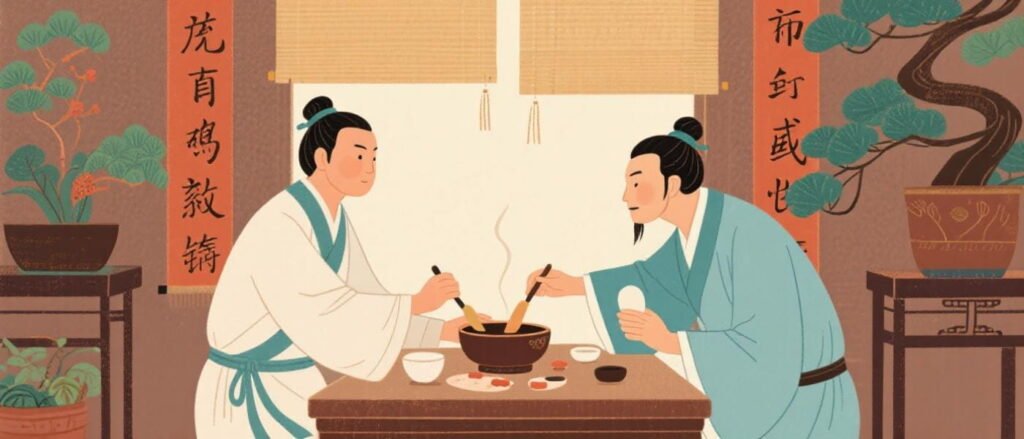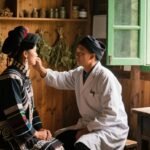This is a record from an ancient Chinese medical text. I will assist in translating the content into English for international readers without omitting any details. Medicinal ingredients will be translated to standard English names followed by pinyin (without tones). Place names remain in standard English spelling without pinyin. All Chinese characters are removed.
My townsman Zhang Wenquan, who held the official title of Sima (a Qing Dynasty position equivalent to a prefectural magistrate’s assistant), was recorded as my clan brother in our genealogy. During the spring of the Bingchen year (1856 in the Chinese calendar cycle), we both traveled to Shaanxi province to await official appointments as supplementary officials (“Xu Ci”). In our leisure time between official duties, we often hosted banquets for each other. His relative Qiao Qi (courtesy name Jieren), then serving as a low-ranking registrar in Yunyang Prefecture, Hubei Province, had come to Shaanxi escorting military funds and was lodging at Zhang Wenquan’s residence.

Though Zhang treated Qiao generously, the latter proved morally despicable – constantly demanding opium for smoking beyond regular meals, requesting clothing, and repeatedly extorting pocket money. When Zhang showed the slightest neglect, Qiao would glare and rage. After enduring prolonged harassment, Zhang resolved to send him away. However, delayed by incomplete transfer procedures for the military funds, this departure was postponed for two months. Upon finally leaving, Qiao hurled endless insults, nearly escalating to physical violence. Being naturally reserved in speech, Zhang couldn’t vent his indignation, leaving him deeply resentful.
One day when Zhang visited me from Xianning, I invited him to dine. During conversation, tears welled in his eyes. I advised him: “Such an unrighteous man isn’t worth your anguish. Now that he’s departed, let it go.” Upon returning home, Zhang suddenly developed labored breathing, severe abdominal pain, and violent vomiting. He urgently summoned me by carriage.
Arriving at his residence, I found the floor covered in phlegm and saliva. Zhang remained in retching posture, drenched in profuse sweating with cyanotic complexion. Pulse diagnosis revealed all six pulses were deep and hidden. I identified this as a critical case of qi rebellion caused by liver qi stagnation, potentially progressing to syncope.
Immediately, I instructed attendants to prepare half a bowl of crushed Shengjiang (Zingiber officinale, ginger) juice for oral administration. Within approximately fifteen minutes, vomiting ceased but chest and abdominal distension persisted, leaving him tossing restlessly. I then administered Yueju Wan (Curculigo and Atractylodes Pill, Zhu Danxi’s classic formula for depression) combined with Shunqi Tang (Qi-Regulating Decoction). By dawn, abdominal distension had eased. Continuing Shunqi Tang for three days achieved full recovery.
Annotations:
- Yueju Wan – Famous depression-treating formula by Zhu Danxi (1281–1358), containing Xiangfu (Cyperus rotundus, nutgrass), Cangzhu (Atractylodes lancea, atractylodes rhizome), Chuanxiong (Ligusticum chuanxiong, Szechuan lovage), Shenqu (Massa medicata fermentata, fermented medicine mass), and Zhiqiao (Citrus aurantium, bitter orange).
- Shunqi Tang – A classical qi-regulating decoction typically containing Chenpi (Citri reticulatae pericarpium, tangerine peel), Muxiang (Aucklandia lappa, costus root), etc., though exact composition requires verification from medical texts.)



Leave a Reply